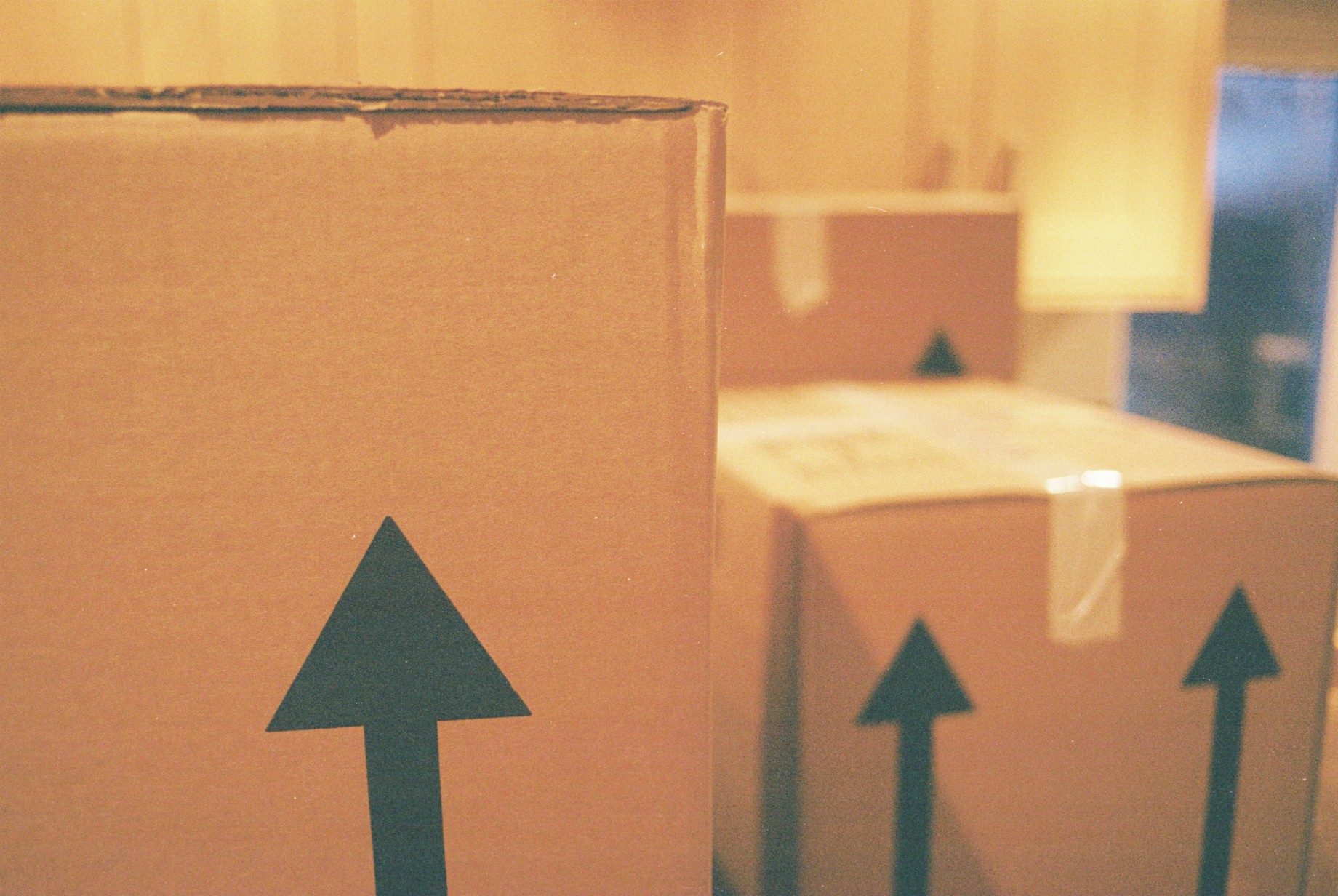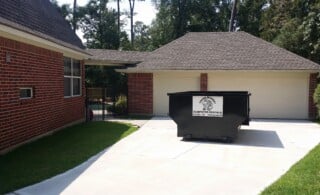
Annoying as it might be to have to move all of your belongings, and basically your life, across town, don’t be fooled into thinking that this will be an easier move than if you were moving across the country. Many have remarked that a short distance move is actually harder than a long distance one because people underestimate the amount of work. Be sure to consult this checklist to make sure that you aren’t missing something.
Moving Your Stuff
- Moving Company/Rental Truck: Decide whether or not you are going to be doing this move yourself, and if so, will you do several small trips or one big one. If you are going to hire a moving company or reserve a rental truck, do so first thing. These services can easily get booked up and leave you stranded. The sooner the better.
- Locating Boxes: Bars and liquor stores always have the best boxes. Their boxes are designed to be able to hold large amounts of weight. However, if you have a friend or neighbor who has moved recently, ask them if you can take some boxes off their hands.
- Make Moving Painless: Pack a little bit every night. One box can make a big difference.
Make a trip to a thrift store to give away what you couldn’t sell. Remember to get receipts and write-off forms for the value of what was donated. - Small Loads: If you are taking several small loads, don’t waste any amount of space on any trip. If you make sure to pack your car full on each trip, you might eliminate 4-5 trips over the course of the move.
- What to Pack First: On the small trips, begin with items you are not currently using, which might include seasonal clothing, sports equipment, books, guest bedroom sets, etc.
- Heavy Boxes: Sit all boxes of books and heavy stuff on the floor so that lighter boxes can go on top.
- Stacking Breakables: Find a place on the floor for breakables so that they can’t fall off of anything.
- Transporting Food: Try to move all the food products in the same load. Too often some things can get separated and forgotten about, then they get spoiled, attract ants, etc.
- Packing Bikes: Visit a bike shop for a box to pack your bike(s).
- Moving In: If you have items that will just go into storage in your new home, such as in the basement or in a closet, be sure to take these boxes straight there. Don’t just drop off boxes right inside the door because it’s easy. Take them where they need to go because you will end up stepping over them throughout the move.
- Gas up the Truck: Be sure to take the rental truck back with a full tank of gas, as they will charge you an extraordinary amount per gallon if they have to fill it.
- Change Locks: As soon as you have access to the house, change the locks just to be on the safe side.
If You Are Renting a Truck…
- Double Check on Your Rentals: Call again to make sure that your truck will indeed be ready just to be on the safe side.
- Renting the Truck: There will be a walk around by you and one of the rental company employees. You will be held accountable for any damage that is not written on this sheet. So be sure to note every little flaw.
- Drive the Route First: Make sure that you drive the route to your new home to make sure there won’t be any clearance issues. Also, determine if you will be able to make all the turns with a big load with traffic. You might decide if another route might be better or easier with a big truck.
- Loading a Rental Truck: Pack the heavy stuff toward the front of the truck, i.e. the part of the truck closest to the cab. Washers and Dryers should go on first, followed by pianos, furniture, and anything big and heavy.
- Truck Ramps: Often rental trucks have a pullout ramp for loading and unloading. This ramp is narrow and typically made of aluminum. Be careful that you don’t fall off either side when carrying heavy objects. Also, these ramps can become very slick if they even get a little bit wet. Carpet scraps and rags are great to minimize slipping.
- Consider Unloading: If you can, pack such that what you want to come off first is put on last. Mainly items that will be going upstairs or toward the back of the house should be loaded last, so they can come off first.
- Crowns in the Road: All roads are crowned in the middle so that water won’t stand. This crown will feel severe in a big truck. Try to stack the driver’s side of the truck with more of the heavy stuff so that the truck rides even.
- One Extra Day: It is a smart idea to compare the pricing difference if you kept the truck one extra day. People often underestimate how draining the whole moving process can be, and if you are hurrying all day so that you can return the truck by five, you will most likely make extra work on yourself by not moving the right things to the right room. Find out what it would be worth to you to be able to take breaks, work at a nice pace, and take the truck back the next day. It could be such a small amount that it would be worth paying for the extra time and have the option to be tired and work smartly.
Ready to start your move?
Find ProsMoving Related Stuff
- Appraisal of Current Needs: Before you even think about moving things that you don’t even want anymore, consider if you have anything that needs to be replaced. Why move an old mattress when you could have a brand new one waiting in your new home? Think about other large items that will be difficult and expensive to transport and consider buying the item new for your new home.
- Appraise Valuables: Standard insurance plans cover general possessions up to a certain dollar amount, but if you have some more expensive items like a big screen TV that you need to insure, now is the best time to have your possessions appraised before you take them on the road.
- Garage Sale: A garage sale is a smart way to reduce some of your possessions and maybe even make a little gas money for the move.
- Thrift Store: Make a trip to a thrift store to give away what you couldn’t sell. Remember to get receipts and write-off forms for the value of what was donated.
- Moving Banks: If your bank does not have a branch where you are moving, close that account and open another in your area.
- Shut Off Utilities: Set up a time to shut off your utilities, phone, cable, and internet.
- Clean Before You Arrive: Have the carpets cleaned before you get there. It’s also smart to have the ducts cleaned. The idea is to move into a completely clean, safe home.
- Safety Deposit Box: This is the best time to withdraw your safety deposit box so that you valuables are only unprotected for a limited amount of time.
- Change of Address: File a change of address form with the post office. Also change your address with the DMV, credit cards, memberships, magazines, newspaper, Netflix, etc. Cancel your newspaper subscription if you are leaving the area.
- Return Borrowed Items: You will have new neighbors now, and while some people keep in touch with their old neighbors, it is a good practice to return anything you borrowed from them and ask for what they borrowed from you.
- Voting: Change your voter registration.
- Apartment Walk-Through: Make sure that you make note of all the problems in your apartment when you move in so that you aren’t held accountable for them when you move out.
Changing Neighborhoods
- Discover the Area: Drive around the area to discover what you are close to: restaurants, convenience stores, dry cleaners, parks, grocery stores, theaters, video stores, etc.
- Friends & Neighbors: Notify your friends and neighbors of your new address and phone number, even email if that is going to change. A good way to do this is with “We’ve Moved” cards.
- Homeowner’s Association: If you have a homeowners association, get a copy of all of the covenants, especially exterior paint colors.
- Emergency Services: Find out what emergency services are close to you: hospital, police station, fire station, pizza delivery place, ice cream shop.
- Recycling Program: Find out if you have a municipal recycling program. If not, locate some recycling centers in your area.
Now that your better prepared for a move, learn all about the cost of moving across town.
 How to Hire a Moving Service
How to Hire a Moving Service  Moving Scams to Escape This Year
Moving Scams to Escape This Year  Dumpster Rentals – When to Rent, Costs, & Tips
Dumpster Rentals – When to Rent, Costs, & Tips  Moving Insurance – Is It Needed?
Moving Insurance – Is It Needed?  6 Moving Costs You Need to Know
6 Moving Costs You Need to Know 

Are You Familiar With This Topic? Share Your Experience.